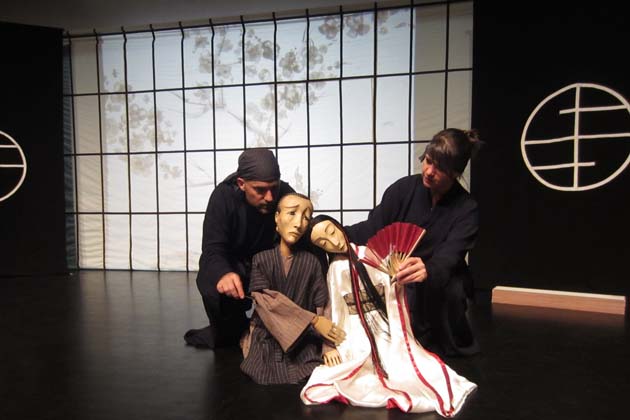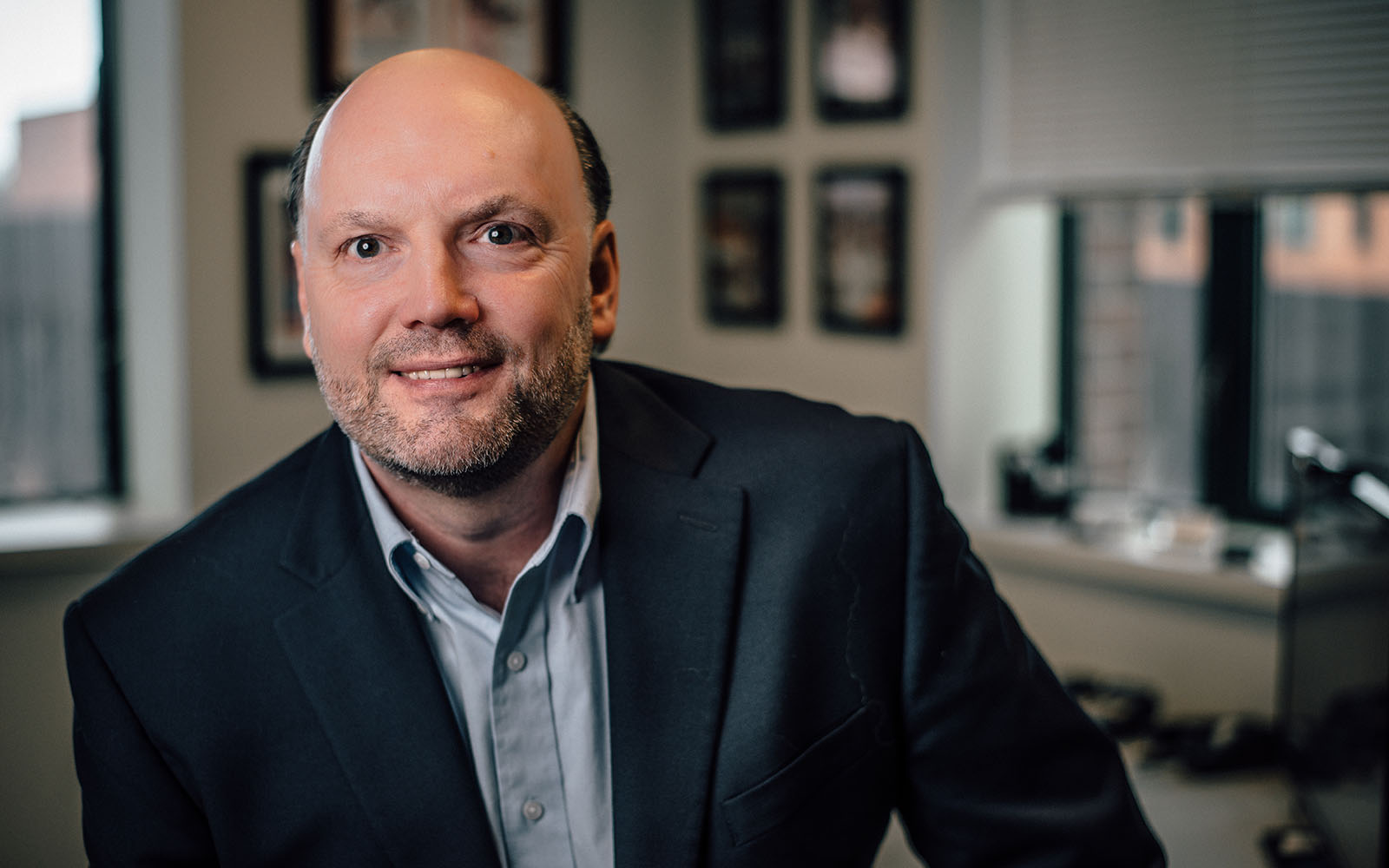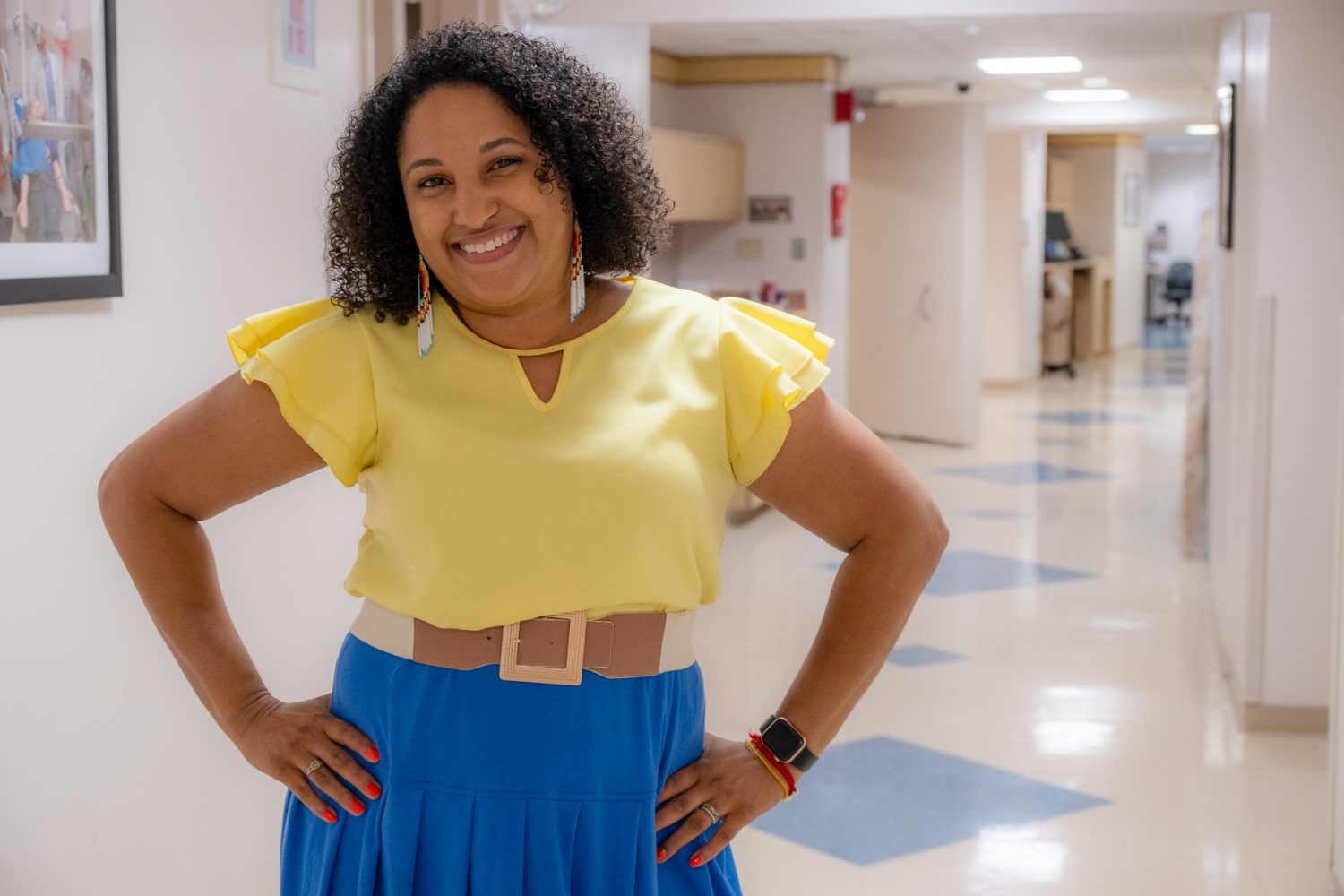
When Margarita Blush learned that UConn was expanding its faculty, she was curious if puppet arts would be among the new positions.
Blush, who earned two degrees in puppetry from the renowned Bulgarian National Academy for Theatre and Film Arts (NATFA), was teaching puppetry and performing in Boulder, Colo., and had been looking for an opportunity to join the UConn program, which is part of the School of Fine Arts.
The puppet arts program was founded by the late Frank Ballard in 1965, and is now led by Bart Roccoberton, professor of dramatic arts in puppetry.
“Ever since I got my MFA, I knew UConn was the only place with a university-level puppet program, and I wrote Bart an email,” Blush says. “When I read about the expansion of the faculty, I got really excited and applied.”
The arrival of Blush, a former student of the internationally known puppeteer Nikolina Georgieva, brings to the puppet arts program another perspective on performance and directing to complement the multi-faceted approach to the art form that Roccoberton has continued since he succeeded the legendary Frank Ballard.

When Frank Ballard established the program, he was the sole professor in puppetry and had to make the classes comprehensive.
“I’ve continued that practice,” Roccoberton says. “In my class I need to deal with concept, history, theory, design, construction, performance, and critique. It’s something we’ve done by necessity. Our students, when they leave us, are puppet builders who know how to perform, and performers who know how to build.”
Now, he says, with the “doubling” of the faculty in puppet arts, and the additional classroom perspective of theater historian John Bell, director of the Ballard Institute and Museum of Puppetry, the UConn program will be able to expand the number of puppetry courses offered each semester for students in the dramatic arts programs and in puppetry.
“We are a unique program in the United States, but we will be even more unique …,” Roccoberton says. “I feel the kids have been getting a really good education. Now with Margarita coming in, we will have a constant force in performing.”

Blush will strengthen the program in other ways, too, he adds. “Her eastern European sensibility will bring something very different in the way we work. … Puppetry in Bulgaria is the leading theatrical form in the country. Many of the great directors, film and stage, went through the puppet academy.”
In Bulgaria, Blush says, most towns have a professional puppet theater led by puppeteers trained in acting and puppetry who create innovative performances for children and adult audiences. She was a puppeteer at NATFA, touring in Europe and the United States, and was also a vocalist with AQUA, a Bulgarian vocal group.
She arrived in the United States in 1995 and became the outreach director for the Fort Wayne (Ind.) Dance Collective, before returning to NATFA for two years to earn her MFA in directing for puppet and alternative theater. Coming back to the U.S., she moved to Boulder, Colo., as the theater and drama specialist at the Ricks Center, a school for gifted children at the University of Denver, developing puppet performances throughout the region.
“My dream is that our students leave the program and become renowned theater artists, who are capable in many areas,” Blush says. “We’re hoping that drama students want to take our classes in imagination and creativity, and that it blossoms into being influential for theater in the United States.”
Roccoberton says puppetry is prominent today on Broadway, where puppeteers trained at UConn are working in shows such as “War Horse,” “Avenue Q,” and “Little Shop of Horrors.” He hopes the current expansion of the puppetry program will eventually lead to UConn graduates not just performing in such shows but also developing them.
“I’m anxious for [our students] to be those leaders who are creating the new theater,” he says. “We might refer to theater-makers, who work with the sensibilities of all aspects of puppetry. ‘War Horse’ comes from South Africa. The Royal Theater of London embraced puppetry. ‘Avenue Q’ came out of the O’Neill Center [in Waterford, Conn.] and the puppetry conference there. We might be able to help those people get the shows to be sold. My hope is that we’d be the companion those producers need.”


